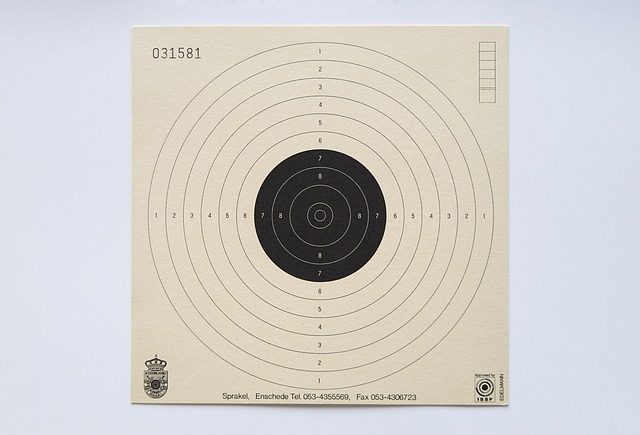Knowing your legal rights during background checks is essential to challenging inaccuracies and discriminatory practices. Under the Fair Credit Reporting Act (FCRA), individuals can dispute errors within specific timeframes. Collect supporting documents, contact creditors/employers directly, file formal complaints, and seek legal advice for persistent issues, ensuring fairness and protecting your rights in check disputes.
“Ensure accurate background checks with our comprehensive guide. Understand your vital legal rights during these processes and learn how to effectively dispute inaccurate information. Discover steps to collect and present supporting documentation, contact creditors or employers for corrections, and file formal complaints if required. Additionally, gain insights into seeking legal advice for persistent errors in check disputes. Arm yourself with knowledge and take control.”
- Understand Your Legal Rights During Background Checks
- Know When to Dispute Inaccurate Information
- Collect and Present Supporting Documentation
- Contact the Creditor or Employer for Corrections
- File a Formal Complaint if Necessary
- Seek Legal Advice for Persistent Errors
Understand Your Legal Rights During Background Checks

When undergoing a background check, it’s crucial to be aware of your legal rights. Understanding these rights can help protect you from potential errors and ensure fairness during the process. In many jurisdictions, individuals have the right to access their own background check records and contest any inaccuracies or outdated information. This means you can request a copy of the report, review it for errors, and dispute them with the relevant authorities or agencies.
Knowing your legal rights is an essential step in navigating background check disputes. You have the ability to challenge not just factual mistakes but also discriminatory practices. For instance, if a particular employer uses outdated criminal records as a blanket disqualifier, you can advocate for more nuanced consideration based on the nature and severity of past offenses. Asserting your legal rights empowers you to protect your reputation and ensure that background checks are conducted fairly and accurately.
Know When to Dispute Inaccurate Information

Understanding your legal rights is a crucial step in navigating background check disputes. If you believe there are inaccuracies or errors in your report, it’s important to know when and how to challenge them. Not every discrepancy warrants a dispute; some minor errors may be simple typos or outdated information that can often be resolved with a simple request for correction from the reporting agency.
However, if the mistakes significantly impact your eligibility for a job, license, or even housing, you have the right to dispute these inaccuracies. Timely action is key; most reports require disputes to be made within a specific timeframe, usually a few years. Familiarize yourself with your legal rights and the procedures outlined in the Fair Credit Reporting Act (FCRA) to ensure any disputes are handled effectively and within the prescribed limits.
Collect and Present Supporting Documentation

When navigating background check disputes, individuals have legal rights to address any inaccuracies or errors. A key step in this process is collecting and presenting supporting documentation. This includes any records, documents, or evidence that contradicts the error in question. For instance, if an old arrest record appears on a candidate’s report, they can provide a dismissal or expungement order to prove it was resolved and no longer applicable.
Additionally, individuals should gather any relevant correspondence with previous employers, educational institutions, or other sources that can attest to their character and integrity. Presenting this documentation is an essential part of disputing the error and ensuring the background check reflects a fair and accurate representation of one’s history.
Contact the Creditor or Employer for Corrections

If you’ve encountered errors in your background check, don’t hesitate to take action. One crucial step is to contact the creditor or employer who provided the information. You have legal rights when it comes to check disputes, and they are responsible for ensuring the accuracy of the data they share. Reach out to them directly and explain the discrepancies you’ve found.
Provide specific details about the errors, such as incorrect addresses, outdated employment dates, or inaccurate criminal records. Creditors and employers often have procedures in place to correct these issues. They may ask for supporting documentation or verification before making the necessary amendments to ensure the updates are legitimate.
File a Formal Complaint if Necessary

If, after reviewing your background check and verifying the information with the relevant sources, you still believe errors exist, it’s crucial to take action. One formal step you can take is filing a complaint with the appropriate authority or agency responsible for handling legal rights check disputes. This formal process ensures that your concerns are documented and given the attention they deserve.
When filing a complaint, be detailed and specific about the errors found, providing supporting documents or evidence to back up your claims. The process may vary depending on the jurisdiction and the nature of the dispute, but it’s a vital step in ensuring accuracy and safeguarding your rights during background checks.
Seek Legal Advice for Persistent Errors

If errors in background checks persist and significantly impact your life, it’s crucial to seek legal advice. Understanding your legal rights is essential when navigating check disputes. Many countries have laws that protect individuals from inaccurate information on their records, and a qualified lawyer can guide you through these regulations. They’ll help determine the best course of action, whether it involves disputing the errors directly with the reporting agency or taking legal measures to correct them.
Legal professionals specializing in this area will ensure your rights are upheld and assist in obtaining justice for any wrongful harm caused by persistent errors in background checks. Their expertise can make a significant difference in resolving these disputes effectively.
